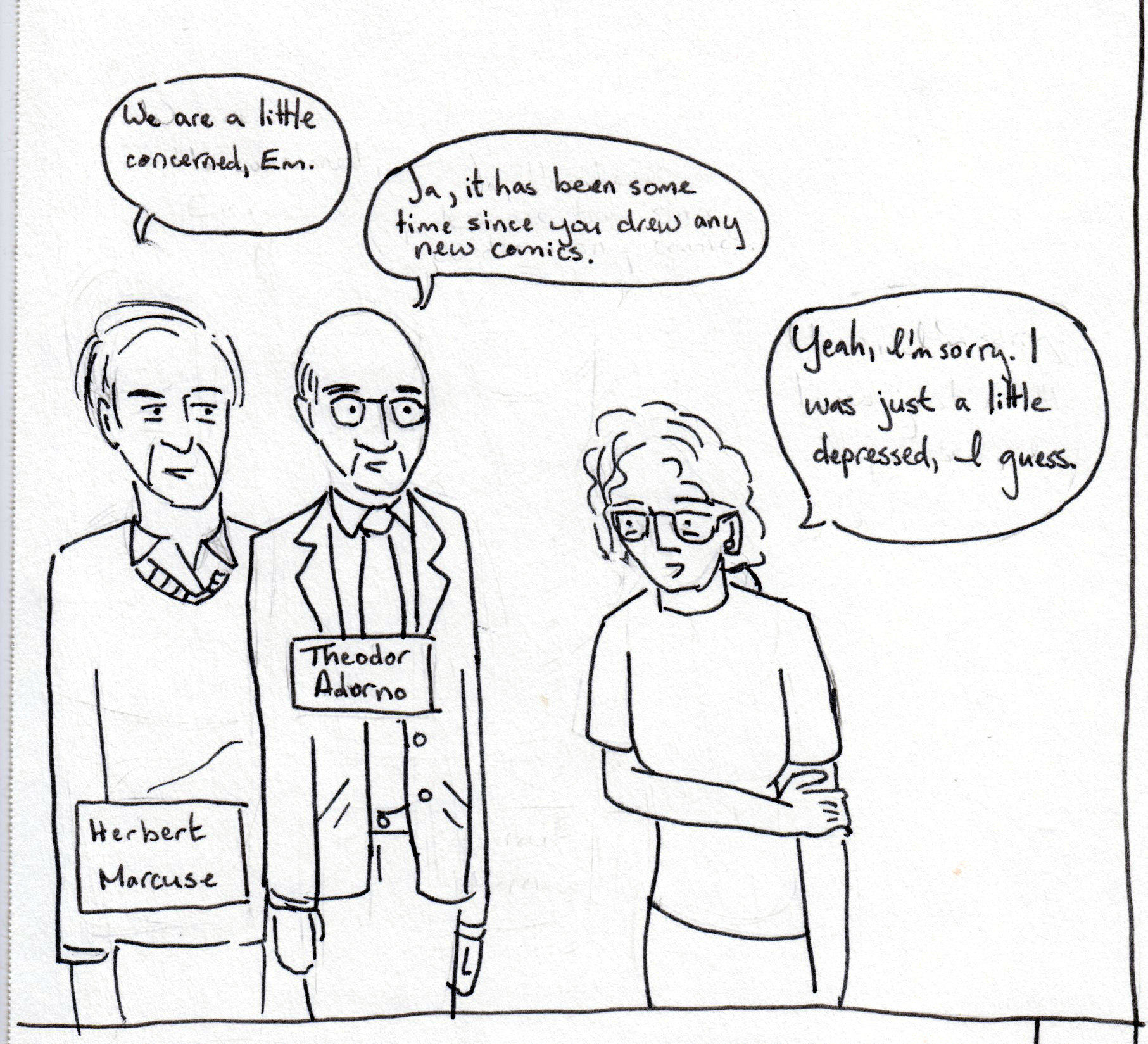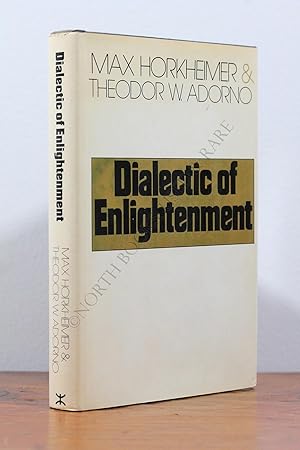

We do not stand by everything we said in the book in its original form. We dictated long stretches together the Dialectic derives its vital energy from the tension between the two intellectual temperaments which came together in writing it. No one who was not involved in the writing could easily understand to what extent we both feel responsible for every sentence. We have been induced to reissue it after more than twenty years not only by requests from many sides but by the notion that not a few of the ideas in it are timely now and have largely determined our later theoretical writings. The book, which found readers only gradually, has been out of print for some time.

The Disappearance of Class History in Dialectic of Enlightenment - A Commentary on the Textual Variants (19) by Willem van Reijen and Jan BransenĬultural Memory in the Present Preface to the New Edition (1969)ĭialectic of Enlightenment was published in 1947 by Querido in Amsterdam. The Culture Industry: Enlightenment as Mass DeceptionĮlements of Anti-Semitism: Limits of EnlightenmentĮditor’s Afterword - The Position of Dialectic of Enlightenment in the Development of Critical Theory Preface to the Italian Edition* (1962/1966)Įxcursus I: Odysseus or Myth and EnlightenmentĮxcursus II: Juliette or Enlightenment and Morality Typeset at Stanford University Press in 11/13.5 Adobe Garamond Last figure below indicates year of this printing: Adorno edited by Gunzelin Schmid Noerr translated by Edmund Jephcott.ġ.

Numbered notes are those created by Horkheimer and Adorno themselves.Įnglish translation ©2002 by the Board of Trustees of the Leland Stanford Junior Universityĭialectic of enlightenment : philosophical fragments / Max Horkheimer and Theodor W. They are keyed in the reference matter section via the number of the page on which the asterisk appears and the preceding word. They include variant readings and other textual concerns. Fishcher Verlag GmbH, Frankfurt am Main.Īsterisks in the text and display material mark editorial notes created for the German edition. Mieke Bal and Hent de Vries, Editors e9780804788090_i0002.jpgĭialectic of Enlightenment: Philosophical Fragments is translated from Volume 5 of Max Horkheimer, Gesammelte Schriften: Dialektik der Aufklärung und Schriften 1940–1950, edited by Gunzelin Schmid Noerr, ©1987 by S.

This new translation, based on the text in the complete edition of the works of Max Horkheimer, contains textual variants, commentary upon them, and an editorial discussion of the position of this work in the development of Critical Theory.Ĭultural Memory in the Present e9780804788090_i0001.jpg "Myth is already enlightenment, and enlightenment reverts to mythology." This paradox is the fundamental thesis of the book. Enlightenment and myth, therefore, are not irreconcilable opposites, but dialectically mediated qualities of both real and intellectual life. They trace enlightenment, which split these spheres apart, back to its mythical roots. Using historical analyses to elucidate the present, they show, against the background of a prehistory of subjectivity, why the National Socialist terror was not an aberration of modern history but was rooted deeply in the fundamental characteristics of Western civilization.Īdorno and Horkheimer see the self-destruction of Western reason as grounded in a historical and fateful dialectic between the domination of external nature and society. The authors perceive a common element in these phenomena, the tendency toward self-destruction of the guiding criteria inherent in enlightenment thought from the beginning. The various analyses concern such phenomena as the detachment of science from practical life, formalized morality, the manipulative nature of entertainment culture, and a paranoid behavioral structure, expressed in aggressive anti-Semitism, that marks the limits of enlightenment. The book consists in five chapters, at first glance unconnected, together with a number of shorter notes. Historically remote developments, indeed, the birth of Western history and of subjectivity itself out of the struggle against natural forces, as represented in myths, are connected in a wide arch to the most threatening experiences of the present. Yet the work goes far beyond a mere critique of contemporary events. "What we had set out to do," the authors write in the Preface, "was nothing less than to explain why humanity, instead of entering a truly human state, is sinking into a new kind of barbarism." Written during the Second World War and circulated privately, it appeared in a printed edition in Amsterdam in 1947. Dialectic of Enlightenment is undoubtedly the most influential publication of the Frankfurt School of Critical Theory.


 0 kommentar(er)
0 kommentar(er)
